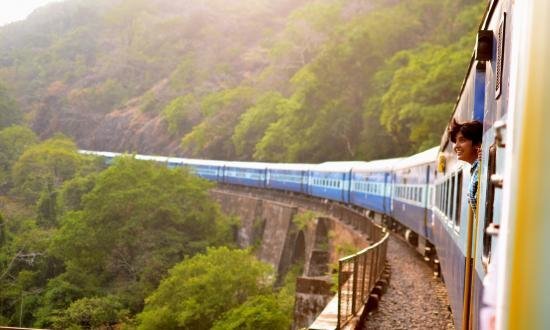railway-international.com
30
'20
Written on Modified on
Thales is working to make trains smarter
Thales is working to make trains smarter and optimise rail traffic to save 30% of their energy consumption

Thales presents its new Whitepaper: Decarbonizing Transport, the case for Railway
With new temperature records and extreme weather conditions, climate change is a real and growing threat. Railways play a vital role in countering the dangers of climate change while supporting the economy and connecting people.
While overall transport emissions in Europe1 have increased 29% over the past three decades, rail emissions have fallen dramatically – despite rising passenger numbers and freight volumes. Freight moved by rail is nearly nine times less polluting than freight moved by road. Passenger journeys by rail also produce much lower emissions than equivalent journeys by other means of transport.
Thales is developing complex Artificial Intelligence (AI) systems that promote eco-responsible AI based on learning and knowledge and consume less energy.
Driver advisory systems (GreenSpeedTM), Traffic Management Systems (TMS), and systems to manage automatic operation of both metros (GreenCBTC) and autonomous trains (RailBotTM) optimise energy consumption through carefully defined driving strategies and by calculating optimal acceleration and braking profiles in real time.
Anticipating network incidents is also an important factor in reducing unexpected train stoppages caused by obstacles on the tracks. Equipped with high-performance connected sensors, a train or metro will be able to detect any obstacles on its own track, but also on parallel tracks, to automatically inform track teams, plan on-site work or even resolve the issue remotely, helping to save energy.
Station supervision systems will analyse energy consumption in real time. Their sensors will determine exact energy needs depending on passenger flows, for example, to ensure that energy consumption matches requirements as closely as possible, while guaranteeing expected levels of performance and without sacrificing passenger comfort. We can legitimately assume that the densification of passengers flow will reduce the number of car trips, which consume more energy (in carbon generated per person and per km traveled) than the train, which remains a very ecological means of transport.
This current white paper presents Thales's eco-responsible strategy in the transportation world. First, it outlines the position of railways in the current transport landscape. Second, it considers how railways can attract and absorb additional traffic. Finally, it examines how AI and digital tools can be used to enable expansion of the rail sector.
Download the white paper
www.thalesgroup.com

